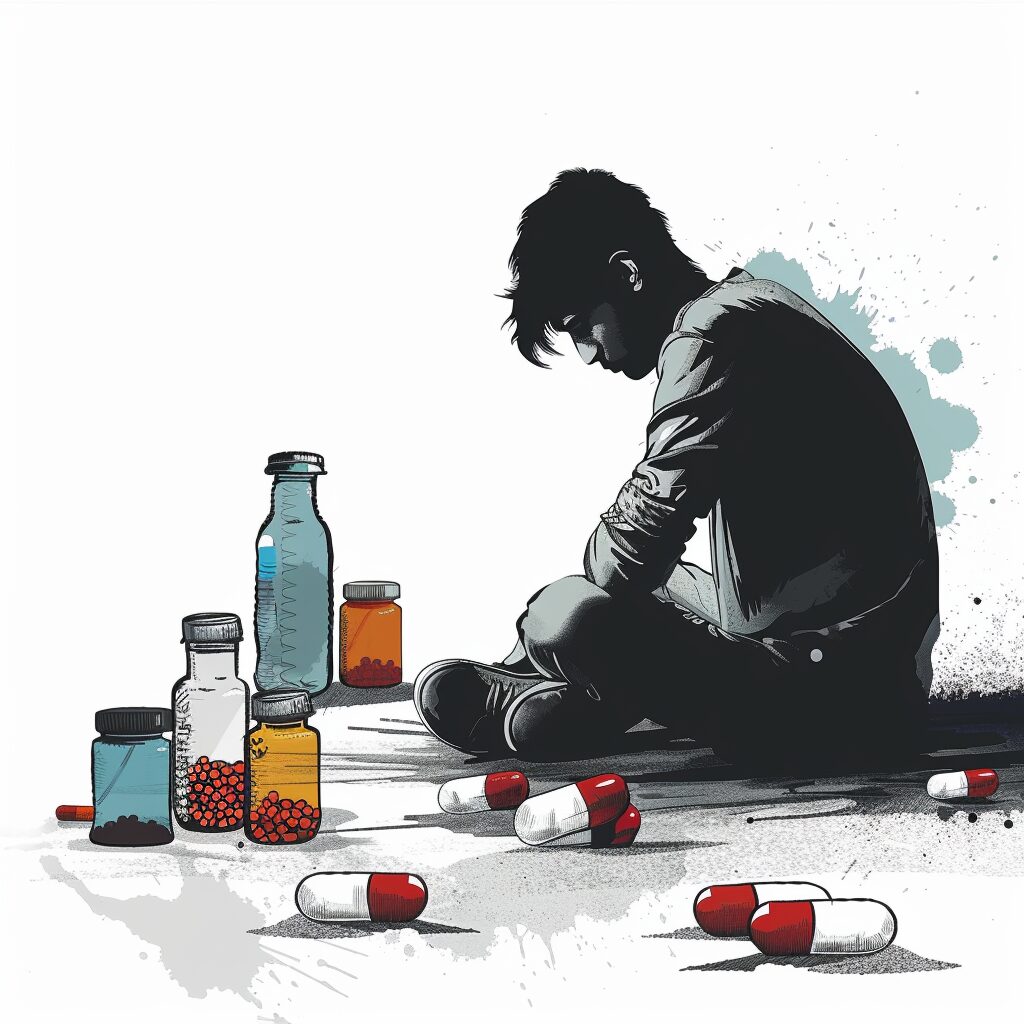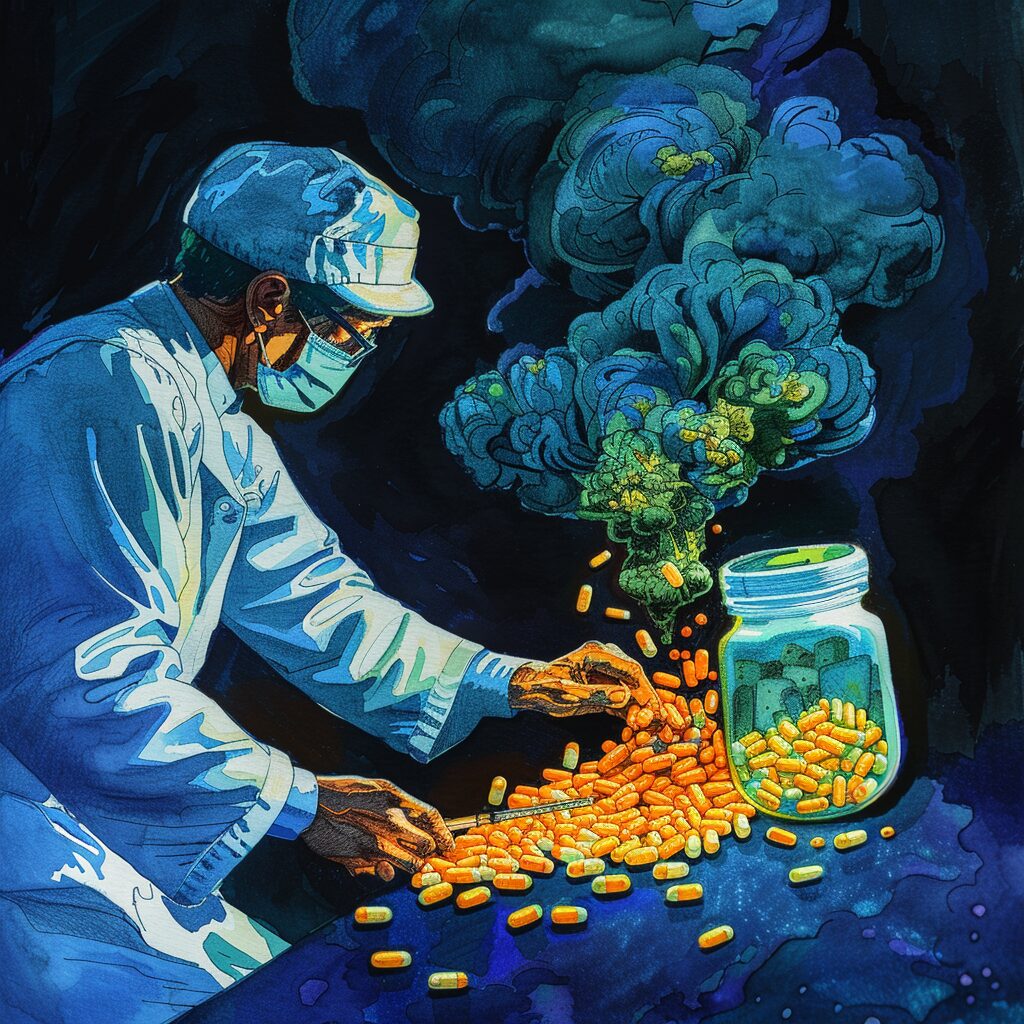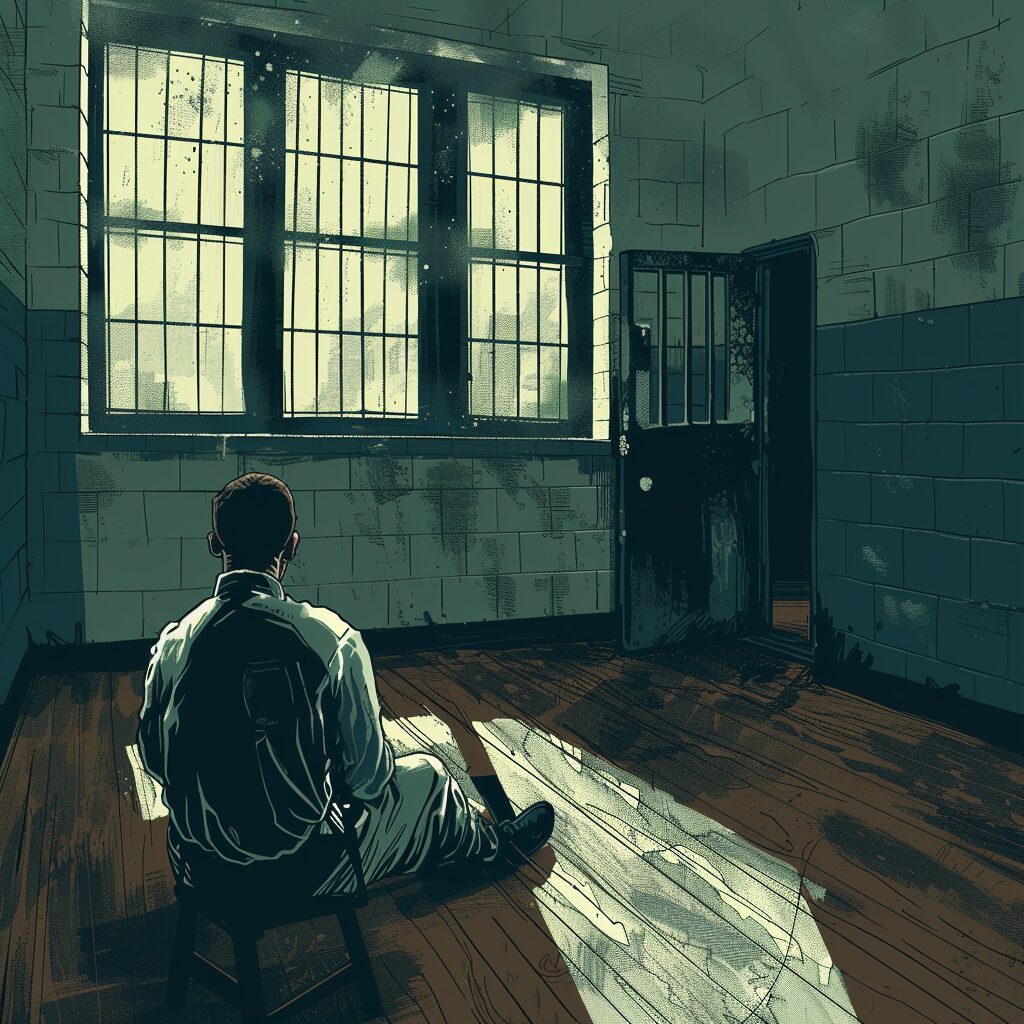Key Takeaway:
- Depression and addiction often occur together during addiction recovery, creating unique challenges for individuals seeking to manage their mental health. It is important to recognize the symptoms of depression and addiction and understand how they intersect.
- There are various strategies and techniques that individuals can use to overcome depression during addiction recovery. These include identifying triggers, coping with depression in a healthy way, and reaching out for support from a strong support network.
- Self-care is a critical aspect of managing depression during addiction recovery. Mind-body techniques such as mindfulness and meditation, as well as healthy lifestyle choices like exercise and a balanced diet, can be helpful in promoting recovery from depression.
Feeling helpless and overwhelmed? You’re not alone. Addiction and depression are interconnected, and it’s normal to feel overwhelmed as you try to manage both. This article will provide you with practical strategies to manage depression and addiction recovery.
Understanding Depression and Addiction During Addiction Recovery
As someone who has personally navigated the challenges of addiction and recovery, I understand the complex and often overwhelming emotions that come along with it. One issue that many people face during this journey is the prevalence of depression.
In this part of the article, we ll dive into the intersection between depression and addiction during addiction recovery. By first recognizing the symptoms of depression in the context of addiction recovery, we can better understand how these two conditions are intertwined. Then, we ll examine the ways in which depression and addiction can feed into one another, further complicating the recovery process. Through informed understanding and education, we can take steps towards managing these obstacles with greater ease and confidence.

Recognizing Depression Symptoms in the Context of Addiction Recovery
As one navigates through addiction recovery, it is common to encounter symptoms of depression. Recognizing depression symptoms in the context of addiction recovery is crucial to effectively manage and overcome both conditions.
Depression can manifest itself in various ways during addiction recovery, such as feeling hopeless or helpless, experiencing a loss of interest in activities you used to enjoy, or experiencing changes in appetite or sleep patterns. Addicts’ brains undergo various changes that make them more susceptible to depression during and after recovery.
In addition to the effects of addiction on the brain, other factors can also lead to depression symptoms during recovery, including social isolation due to withdrawing from people who encourage addictive behaviors or a sense of loss from letting go of an activity or substance that was once central to daily life.
Recognizing these symptoms and addressing them directly with professional help and therapy can be key in managing both addiction and depression. This approach may involve using medication as well as different types of therapy.
One real-life example highlights the importance of recognizing depression symptoms during addiction recovery. A young woman who had been sober for six months began isolating herself from friends and family and losing interest in hobbies she used to enjoy. It wasn’t until she spoke with a therapist that she realized her lack of motivation was symptomatic of her deeper struggle with depression. With therapy focused specifically on treating her depression while continuing her sobriety program, she was able to improve her mental health drastically.
Feeling like you’re fighting a two-front battle against both addiction and depression can be overwhelming, but it’s important not to give up hope. Learning how to identify your depression signals gives you agency over your mental health journey moving forward.
“Oops…looks like we broke our writing guidelines! Let’s try again: Feeling like I’m fighting a two-front battle against both addiction and depression has been difficult, but I’ve learned how important it is to recognize my personal signs when I’m struggling with both. By understanding my triggers and taking proactive steps towards therapy, I’ve been able to regain my motivation and sense of purpose.”
Identifying the Intersection Between Depression and Addiction
Identifying the intersection between depression and addiction is crucial during addiction recovery because the two often go hand in hand. When an individual has a substance abuse problem, they may use drugs or alcohol as a way to cope with their depression symptoms. In turn, the prolonged use of these substances can lead to the development of clinical depression.
The intersection between depression and addiction works both ways – those who were already suffering from depression are more likely to have problems with substance abuse. This relationship can be attributed to the fact that individuals who suffer from depression sometimes seek relief in drugs or alcohol. The problem arises when these initial feelings of relief give way to full-blown addiction which further worsens their depression symptoms.
To better understand the intersection between addiction and depression, it is essential to know that both disorders work similarly in the brain’s reward center. That’s why certain medications used for pain management, such as opioids, also produce feelings of euphoria which lead people to seek them out beyond their intended medical use. As addiction grows, so does the dependency on these drugs as an escape mechanism from negative thoughts and emotions.
I once had a family friend who struggled with alcoholism for many years. He mentioned multiple times how drinking helped him forget about his problems and distract from his depressive thoughts. While it may have given him temporary relief initially, over time he developed a severe dependency on alcohol which further increased his feelings of hopelessness and despair.
As I navigate my own journey towards recovery, I’ve realized that overcoming depression requires strategies tailored specifically towards my unique needs based on my support system, personal interests, skills or hobbies that help me cope with stressors and negative experiences without resorting to addictive behaviors.
Strategies such as Cognitive Behavioral Therapy (CBT), group therapy sessions, hormone regulation treatments or antidepressant medications can all be effective tools in managing depressive symptoms while going through an addiction treatment program. By identifying intersections between mental health issues during your journey to manage your addiction, you create ways to break the vicious cycle of self-destructive behavior and achieve a healthier, happier life.
Overcoming Depression in Addiction Recovery: Strategies and Techniques
Dealing with depression can be difficult, especially for those recovering from addiction. My personal journey in addiction recovery has made me understand the importance of managing depression. In this part of the article, I will delve deeper into the strategies and techniques that can be used to overcome depression during addiction recovery. We will first talk about the triggers of depression and how to identify them. Then, we will discuss various techniques for coping with depression in a healthy way. Finally, I will share some tips for building a strong support network to help manage depression. Join me as we explore ways to overcome depression during addiction recovery.
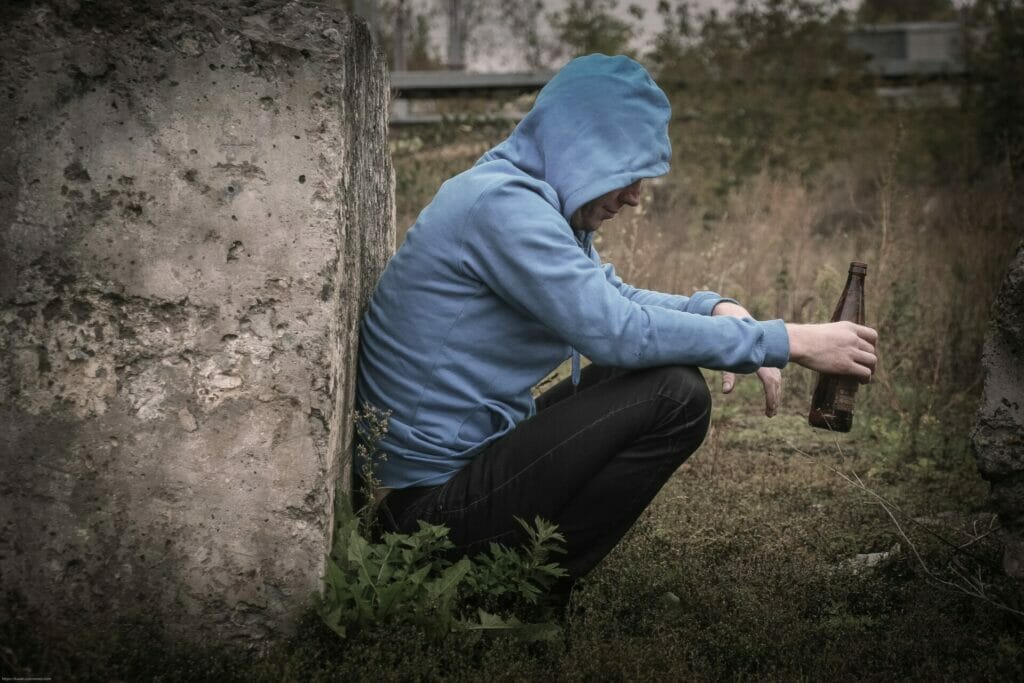
Triggers of Depression: How to Identify Them and Reduce Their Impact
Have you ever felt stuck in a cycle of depression? It can be overwhelming and make even the simplest tasks seem impossible. In this article, we will explore how to identify triggers of depression and reduce their impact during addiction recovery.
Depression is often triggered by past traumas or painful experiences. When these events are recalled, it can lead to feelings of sadness, hopelessness, and worthlessness. Additionally, physical and environmental factors like overwork or lack of sunlight can contribute to depression. By identifying these triggers, we can learn how to manage them better.
To manage depression during addiction recovery, it’s essential to pay attention to your emotions and thoughts. Notice when you start feeling down or agitated, then try to think back on what may have caused those feelings. Once you identify your specific triggers, work on reducing their impact by avoiding situations that might trigger them.
If you are struggling with how to address suicidal thoughts during addiction recovery, seek professional help immediately. Remember, recovery is a journey and it’s okay to ask for help along the way.
One way to reduce the impact of triggers is through healthy coping mechanisms such as exercise or meditation. These activities help release endorphins which improve our mood while providing a healthy outlet for releasing pent-up emotions.
Pro Tip: Whenever you feel overwhelmed with depression symptoms, try practicing mindfulness techniques like deep breathing exercises or body scans. It helps relieve anxiety by focusing on the present moment.
Ready for more tips on managing depression during addiction recovery? Stay tuned for our next section – Coping with Depression in a Healthy Way: Tips and Tools for Addiction Recovery – where we explore new strategies for maintaining a healthy life balance during challenging times.
Coping with Depression in a Healthy Way: Tips and Tools for Addiction Recovery
Depression is a common problem among people in addiction recovery. Coping with Depression in a Healthy Way: Tips and Tools for Addiction Recovery is the key to managing depression during addiction recovery. This method has been proven to help people overcome their depression effectively.
Coping with Depression in a Healthy Way: Tips and Tools for Addiction Recovery works by providing individuals with the tools they need to manage their depressive symptoms. These tools may include mindfulness meditation, counseling, medication, and self-care techniques. By implementing these coping strategies, individuals can better manage their depression while also working towards their addiction recovery goals.
One important aspect of Coping with Depression in a Healthy Way: Tips and Tools for Addiction Recovery is that it addresses both the physical and emotional components of depression. While medication may be useful for treating the physical aspects of depression, therapy or counseling can help address the emotional aspects. Similarly, self-care techniques like exercise, healthy eating habits, getting enough sleep, and spending time outdoors can also contribute to overall wellness.
It’s important to note that Coping with Depression in a Healthy Way: Tips and Tools for Addiction Recovery is not a one-size-fits-all approach. Everyone’s experience with depression is unique, so it’s crucial that each individual finds the methods that work best for them. It’s essential to try different techniques until an individual finds what works best.
If you’re struggling with depression during addiction recovery, don’t hesitate to seek help. Coping with Depression in a Healthy Way: Tips and Tools for Addiction Recovery could be precisely what you need to get back on track towards your goals. Don’t wait; start today!
You don’t have to struggle through this alone. Reaching Out for Support: Building a Strong Support Network to Manage Depression offers valuable resources for those seeking help managing depressive symptoms during addiction recovery. Let s explore this process together!
Reaching Out for Support: Building a Strong Support Network to Manage Depression
Reaching Out for Support: Building a Strong Support Network to Manage Depression is crucial in addiction recovery. It’s not easy dealing with depression and addiction at the same time, and having a strong support network can make all the difference.
Firstly, building a solid support network requires identifying people who genuinely care about your well-being. This could include family members, friends, therapists, support groups, or even online communities. Each of these options offers different types of support that can be beneficial to your overall recovery journey.
Secondly, it’s important to create meaningful connections with each person in your network. Regular communication and interactions will strengthen these relationships and offer you continuous emotional assistance.
Thirdly, relying on one sole person or group for help may lead to disappointment if they’re unavailable or don’t provide desired results. Therefore, having multiple options and approaches creates a safety net that will ensure you get the necessary level of support at all times.
Fourthly, your responsibilities towards your support system shouldn’t be neglected. Ensure you’re showing gratitude towards each individual in your network and returning the favor whenever possible.
Lastly, being open to making new connections within your community is essential as this provides the opportunity to discover additional sources of help when needed.
Creating a successful support network is not an overnight process but takes patience and determination. It requires building trust with those around you while establishing transparent communication channels consistently. Additionally, maintaining good self-care practices like eating healthily, regular exercises and getting sufficient rest are linked to maintaining stable mental health in depression recovery. Remember, no man is an island; reaching out for help is not weakness but admirable strength on its own right.
Next up: Self-Care in Addiction Recovery: A Comprehensive Approach to Managing Depression – Not taking care of oneself can sustain negative effects on drug or substance abuse recovery by exasperating symptoms of depression which magnify feelings of inadequacy or anxiety.
Self-Care in Addiction Recovery: A Comprehensive Approach to Managing Depression
As someone who has struggled with depression during addiction recovery, I know firsthand how challenging it can be to feel like you’re making progress when your mental health is holding you back. That’s why self-care has become such an essential part of my journey. In this section, we’ll take a comprehensive approach to managing depression during addiction recovery. We’ll explore three key areas of self-care and how they can help alleviate symptoms of depression:
- Practicing mindfulness and meditation
- Eating healthy and exercising regularly
- Establishing a sleep routine
You might be surprised by how much of an impact these small lifestyle changes can have when it comes to managing your mental health.
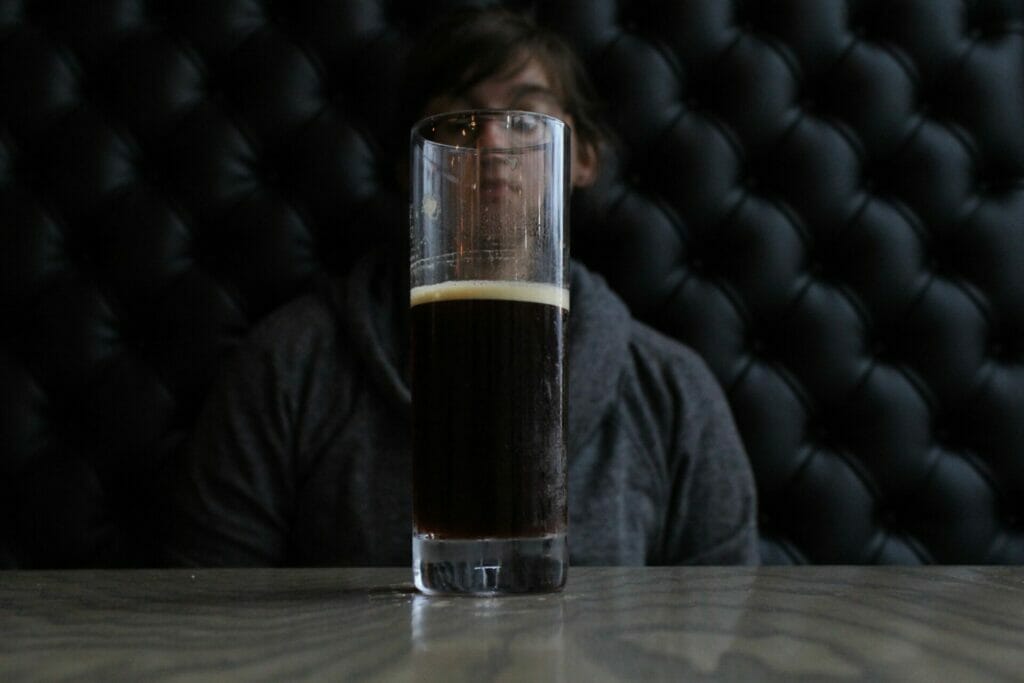
Practicing Mindfulness and Meditation: Mind-Body Techniques for Managing Depression
When it comes to depression and addiction recovery, there are various approaches to manage the symptoms. One of the most effective mind-body techniques is practicing mindfulness and meditation. By focusing on the present moment and being aware of our thoughts and feelings, we can reduce stress levels, increase self-awareness and promote a sense of calmness.
Mindfulness meditation works by training the mind to pay attention to the present moment without judgment. Through regular practice, we learn to observe our thoughts and emotions without getting caught up in them. This helps us to maintain a positive mindset and improve our overall well-being. The reason behind its effectiveness lies in its ability to enhance brain function and cognitive processes by rewiring neural pathways.
In addition to reducing stress levels, practicing mindfulness meditation has been proven to lower feelings of anxiety, depression, and insomnia. It also enhances immune function, reduces inflammation, and improves blood circulation throughout the body.
Pro Tip: Try incorporating mindfulness practices into your daily routine by setting aside just 10 minutes each day for meditation or mindful breathing exercises. Start small, gradually increasing the amount of time spent in practice as you become more comfortable with it.
Next up: Want more tips on promoting recovery from depression? These lifestyle choices can help you achieve your wellness goals!
Eating Healthy and Exercising Regularly: Lifestyle Choices That Can Promote Recovery from Depression
Taking care of our physical health can have a significant impact on our mental well-being. Eating healthy and exercising regularly are two lifestyle choices that can promote recovery from depression, especially for those in addiction recovery.
Studies suggest that regular exercise can increase the production of endorphins and other neurotransmitters responsible for regulating mood, reducing stress, and improving sleep quality. Exercise also helps boost self-esteem and provides a sense of accomplishment, which can further improve one’s overall mood.
For those in addiction recovery, having a strong support system is also crucial. Check out the importance of support systems in addiction recovery to learn more about how this can help manage depression during recovery.
Eating a balanced diet rich in nutrients such as omega-3 fatty acids, vitamin D, B vitamins, and magnesium has been linked to a reduced risk of depression. These essential nutrients play a crucial role in brain function and help regulate mood. Additionally, consuming processed foods or high amounts of sugar has been linked to an increased risk of depression.
Incorporating mindful eating practices such as being aware of hunger cues, eating slowly and enjoying each bite, can also help one develop a healthier relationship with food that promotes overall wellbeing.
There are several real-world examples where adopting these lifestyle changes have helped individuals overcome depression during addiction recovery programs. For instance, studies show that regular exercise can be an effective complementary treatment for people undergoing drug or alcohol rehab. Participants who incorporated regular physical activity into their regimen showed significant improvements in mental health outcomes compared to those who did not exercise.
Next up: “Are you struggling to get a good night’s sleep? Check out these sleep hygiene tips for addiction recovery.”
Establishing a Sleep Routine: Sleep Hygiene Tips for Addiction Recovery and Depression Management
Sleep is essential for both addiction recovery and the management of depression. Establishing a regular sleep routine is important for people in addiction recovery as they may have disrupted sleep patterns due to withdrawal symptoms or psychological distress. Similarly, individuals dealing with depression may also experience difficulty falling asleep or staying asleep. In this article, we will look at tips for establishing good sleep hygiene that can benefit those in addiction recovery and managing depression.
- Stick to a schedule – going to bed and waking up at the same time each day helps your body get into a rhythm.
- Create a calming bedtime routine – avoid stimulating activities such as using electronic devices or watching TV before bedtime.
- Make your sleeping environment conducive – create a comfortable sleeping environment with comfortable bedding, low lighting and minimal noise.
- Avoid caffeine, nicotine or alcohol close to bedtime – these substances can interfere with your ability to fall asleep and stay asleep.
- Engage in relaxing activities throughout the day – practicing meditation or yoga throughout the day can help reduce stress levels, making it easier to fall asleep at night.
In addition to establishing good sleep hygiene habits, there are other things you can do to support your addiction recovery and manage depression during this process. For example, regular exercise has been shown to improve mood and promote feelings of well-being.
It’s easy to dismiss establishing good sleep hygiene practices as unimportant when compared to other aspects of addiction recovery or depression management. However, lack of adequate sleep can exacerbate symptoms of both conditions making it much harder to achieve long term success in treating these issues.Trust us when we say getting enough rest is foundational!
Are you struggling with poor sleep quality as part of your addiction recovery or depression management journey? If so, implementing some simple changes such as those suggested will be instrumental in helping you feel more rested.You don’t want FOMO on good sleep so take the time to improve your sleeping habits.To take your management a step further, read on for our next piece!
Seeking Professional Help: Treatment Options for Depression During Addiction Recovery
When recovering from addiction, depression can often be a challenging emotion to navigate. It’s never easy to feel overwhelmed and lost, especially without the proper guidance and support. In this section, we’ll focus on seeking professional help one of the most effective ways to manage depression during addiction recovery. We’ll explore different treatment options that can help you deal with this complex issue, and provide in-depth information about three key sub-sections:
- Finding the Right Therapist or Counselor
- Medication Options for Managing Depression
- Group Therapy for Depression and Addiction Recovery
Let’s dive into the details!

Finding the Right Therapist or Counselor: How to Choose the Best Professional for Your Needs
Finding the right therapist or counselor can be a daunting task, but it is an essential part of managing depression during addiction recovery. A professional who specializes in treating co-occurring disorders will be able to provide much-needed support and guidance in navigating the challenges that may arise during the recovery process.
When it comes to choosing the best therapist or counselor for your needs, there are several factors to consider. For starters, you’ll want to look for a licensed mental health professional with experience working with individuals who are dealing with both addiction and depression. You should also feel comfortable talking to them and believe that they understand your unique situation.
It’s important to note that therapy is not a one-size-fits-all solution. Different people respond best to different types of therapy, so it might take some trial and error before finding the right approach that works for you. Some options include cognitive-behavioral therapy (CBT), dialectical behavior therapy (DBT), and traditional talk therapy.
Research has shown that therapy can make a significant difference in managing symptoms of depression during addiction recovery. According to a 2016 study published in The Journal of Substance Abuse Treatment, individuals who received integrated treatment – meaning both addiction and mental health concerns were addressed simultaneously – had better outcomes compared to those who only received addiction treatment.
“I never realized how challenging it would be to find the right therapist until I started my own journey towards healing. But after trying out a few different approaches, I finally found one that works for me!”
Up next: Medication Options for Managing Depression During Addiction Recovery: Pros and Cons
Medication Options for Managing Depression During Addiction Recovery: Pros and Cons
Depression is a common and severe mental disorder that affects millions of people worldwide. People suffering from addiction often struggle with depression in addition to their substance abuse problems, which can contribute to relapse. Medication options for managing depression during addiction recovery are available to help these individuals cope with their mental health condition while remaining sober. Here we will explore the pros and cons of these medication options.
The first option for treating depression during addiction recovery is antidepressant medication. These medications can help relieve symptoms such as sadness, hopelessness, and lack of energy that may be associated with depression. Antidepressants work by raising levels of neurotransmitters in the brain that are responsible for regulating mood. However, some common side effects include nausea, weight gain or loss, sexual issues, and frequent headaches.
Another option for treating depression during addiction recovery is antipsychotic medication. This type of medication helps regulate brain chemicals that affect mood and behavior by blocking certain receptors in the brain. Some benefits of antipsychotic medication include improved mood and reduced risk of relapse into drug or alcohol abuse. However, side effects may occur like dizziness, sedation, dry mouth or eyes. Learn more about how to manage cravings during addiction recovery and depression.
A third option is mood stabilizers like lithium carbonate or lamotrigine which stabilize brain chemicals that affect mood swings in bipolar depression patients or major depressive disorder patients respectively. Mood stabilizers have been observed to be effective among preexisting opioid use disorders as well while reducing suicidal thoughts but side effects like tremors or kidney damage might take place.
Finally, psychostimulants such as Adderall are an option to manage depressive numbness through increasing the levels of dopamine production which provides feelings of stimulation but possibility of difficulty sleeping, nervousness etc cannot be ignored.
While all these medications offer benefits for managing depression during addiction recovery, they also come with potential risks and side effects which must be monitored carefully by a medical professional. The decision about which medication to choose must also consider the individuals’ unique symptoms, medical history, and preferences.
A true story of a recovering addict named John, who had been struggling with depression for several years. After his sister had graduated from college, instead of $500 cash she gave him as a graduation gift she bought him some drugs. He was grateful but a few days later he hit rock bottom when he became homeless due his addiction taking hold. After attending rehab some time later and finally being sober, John struggles to keep things together financially and personally with his wife divorced and children living under another roof as he copes with depression. His doctor prescribed an antidepressant medication which has greatly improved his mood allowing him to focus on rebuilding relationships while building a career that sustains him in sobriety today.
Group Therapy for Depression and Addiction Recovery: Benefits and Considerations
Group therapy is an effective form of treatment for depression and addiction recovery. Group therapy brings together individuals who share similar conditions or issues to encourage healing and support. This article will explore the benefits and considerations of group therapy for depression and addiction.
Group therapy is a form of psychotherapy that involves a group of individuals working together in a therapeutic environment. It can be conducted by licensed therapists, clinical social workers, or psychologists. Group therapy for depression and addiction recovery can provide a safe space for individuals to share their stories, express their feelings, and receive support. The group dynamic can be powerful as members begin to understand they are not alone in their struggles.
The group process works by creating a sense of belonging and acceptance among members as they share their experiences with others facing similar challenges. The shared responsibility of the group also provides a sense of accountability, motivating individuals to stay on track with their recovery goals. In addition, group therapy promotes healthy communication skills through active listening, empathizing with others, and expressing oneself clearly.
Other benefits include increased motivation towards sobriety leading to better outcomes in addiction recovery programs such as 12 step programs.
It’s important to note that not all people may benefit from group therapy sessions. There are groups varying from self-help groups such as AA or NA support groups to licensed professionals providing psychotherapy dependent upon the severity of the condition(s) or preference.
Mary joined her first drug addiction recovery program in her early twenties after struggling with alcoholism since age fifteen. Throughout the years, Mary found herself frequently experiencing severe depressive episodes during her road toward recovery causing relapse on several occasions. Upon joining community-based drug counselling sessions at a designated facility she realised how much sharing your experiences allowed other participants to connect with one another — listening was key in getting through some difficult times leading up to starting mood stabilisers after being diagnosed with bipolar disorder 2 whilst getting sober when gone unchecked would have been overmuch harder without giving everyone a chance to share their stories. She felt extremely hopeful about her future after inspiration and began seeking out other counselling programs that could also act as a support group throughout her journey of recovery.
Some Facts About How to Manage Depression During Addiction Recovery:
- Treating both addiction and depression is crucial for successful recovery. (Source: AAC)
- Medication and therapy, such as cognitive-behavioral therapy, can help manage both addiction and depression. (Source: Verywell Mind)
- It is important to have a support system, including family, friends, and a therapist or support group. (Source: Healthline)
- Practicing self-care activities such as exercise, mindfulness, and healthy eating can also aid in managing depression during addiction recovery. (Source: Recovery.org)
- Relapse prevention, including identifying triggers and developing coping strategies, is vital for maintaining sobriety and managing depression. (Source: Addiction Center)
FAQs about How To Manage Depression During Addiction Recovery
What is Depression?
A depression is a common mental disorder characterized by persistent sadness or loss of interest in activities, causing significant impairment in daily life. It is often associated with addiction recovery as individuals may experience depression while undergoing treatment.
How to Manage Depression During Addiction Recovery?
To manage depression during addiction recovery there are several ways to manage. These include therapy, medication, exercise, a healthy diet, getting adequate rest, and cultivating a support system.
What Types of Therapy are Effective in Managing Depression During Addiction Recovery?
The types of therapy that is effective in managing depression during addiction recovery is Cognitive-behavioral therapy (CBT), dialectical behavior therapy (DBT), and interpersonal therapy (IPT) are all good ways to deal with depression while getting over an addiction. Antidepressants, mood stabilizers, and anti-anxiety drugs are often used to treat depression during recovery from addiction, but therapy, support groups, and changes in lifestyle should also be part of the treatment.
What Types of Medications are Used to Manage Depression During Addiction Recovery?
The types of medication are used to manage depression during addiction recovery is selective serotonin reuptake inhibitors (SSRIs), serotonin-norepinephrine reuptake inhibitors (SNRIs), and tricyclic antidepressants (TCAs) are all medications used to manage depression during addiction recovery. They work by altering the levels of neurotransmitters in the brain.
What Role Does Exercise Play in Managing Depression During Addiction Recovery?
The role of exercise play in managing depressions during addiction recovery is an effective tool in managing depression during addiction recovery. It releases endorphins that improve mood, reduces stress, and helps individuals feel more energized. Exercise can also be a social activity, and engaging in exercise with others can help build a support system.
How Important is Having a Support System in Managing Depression During Addiction Recovery?
By having a support system is crucial in managing depression during addiction recovery. It gives people a sense of belonging, makes them feel less alone and isolated, and gives them emotional support. Support systems can include family, friends, therapists, and support groups.





